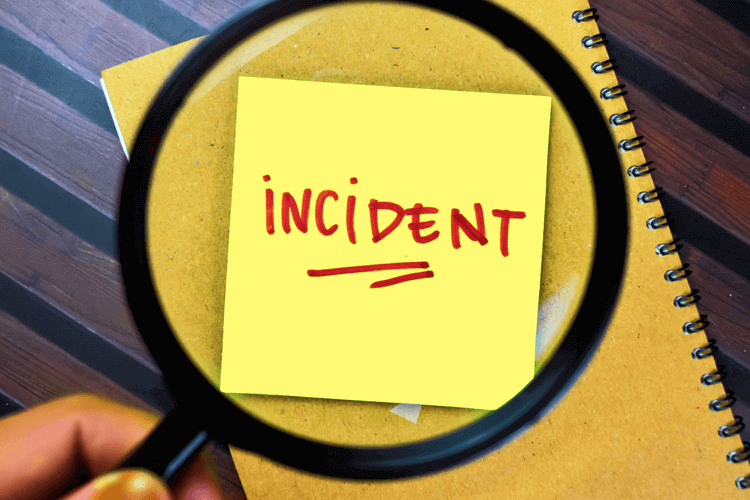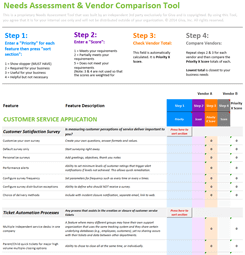A Practical Guide to Customer Service Management: Strategic Tools, and Best Practices
We already know that business revolves around your customer, and attracting new buyers and retaining your most loyal ones is critical to success and longevity. Enter Customer Service Management.
In this guide, you'll learn what Customer Service Management is, why it matters, and which tools have the biggest impact. You'll also find insights on choosing the right strategies and building strong customer service leadership.

What Is Customer Service Management?
Simply put, Customer Service Management (CSM) is the strategy you use to manage how your business interacts with customers. Effective customer service management should also support business goals. It includes things like handling service requests and resolving customer inquiries with care. It also involves the use of customer feedback and building strong customer relationships to boost repeat business.
It is important to highlight that CSM should be proactive, not reactive. In practice, a robust CSM strategy helps to improve the customer experience from the first contact through post-sales support.
The Purpose and Benefits of Effective Customer Service Management
A robust CSM system isn't only for fixing problems; it also creates lasting value for your customers and ultimately, your business. Here are some of the most important functions of customer service management:
- Building strong customer relationships that lead to trust and loyalty
- Improving customer satisfaction scores with fast, consistent and reliable support
- Increasing customer retention rates by keeping customers happy over long periods of time
- Turning satisfied buyers into brand advocates who spread positive word-of-mouth in person and online
- Collecting and actually using customer survey feedback to improve products and services
- Aligning customer service efforts with your business goals to drive growth. This is an important correlation!
6 Essential Tools of Customer Service Management
By this point, we hope you're inspired to take the next steps toward crafting or improving your own CSM. That said, you can't do it alone. You'll need to deploy specific tools designed to streamline the process. These tools help improve response times, collect the right customer data points, and align your efforts with your business goals.
-
Customer Relationship Management (CRM)
This essential system helps you keep track of many aspects of your customers. It stores details like who they are, how to contact them, what they're interested in, and how their customer journey has changed over time. For businesses looking to improve customer communication, a CRM system is very important. It keeps all customer data in one place, supports personalization efforts, and enables timely follow-ups.
For example, a CRM might track past purchases or conversations, so agents can tailor responses to each customer.
-
Customer Service Support Software
One of the most important parts of keeping your customers happy and loyal is providing superior customer service. A great help desk platform helps you manage, track, and resolve customer service tickets and issues efficiently. This is important because it keeps tickets organized, improves response times, and ensures customer issues don't slip through the cracks. Here are a few ways help desk software can benefit you and your customers:
- Ticket assignment and tracking
- Automated responses or routing
- Reporting tools for metrics like response times or resolution rates
For example, help desk software can automatically assign tickets based on an agent's workload or expertise. This helps make sure customers get faster and more accurate support. Agents can also review customer history to troubleshoot issues without asking repetitive questions.
Ready to get started? Giva's Customer Service Software is AI-powered and HIPAA-compliant, helping you manage customer service more efficiently and securely. Learn more and start a free trial today.
-
Knowledge Base Software
Many customers think talking directly with your team is the best way to resolve issues. But constant direct contact can overwhelm your customer service team. Build a knowledge base with guides, tutorials, and FAQs to help customers find their own solutions. This can lower the number of tickets your team needs to handle and improve customer satisfaction. Remember, a knowledge base is not a replacement for phone, email, or chat support. It should be a helpful addition to your customer service suite. Here are some ideas for making your knowledge base more effective:
- Searchable, so customers can describe their concerns and find the most relevant materials
- Easy to update, so you can keep the information accurate and relevant
- Analytics on which articles customers view most, providing insights on the most common issues
For example, a well-organized knowledge base gives customers direct access to password reset links or product manuals without needing to request these from an agent.
-
Live Chat and Messaging Tools
For early risers, night owls, or weekend warriors, customers want around-the-clock service. Adding live chat to your website lets your customer service agents talk with customers in real time on the web or mobile devices. AI-powered chatbots can also reduce pressure on your team. They reply to common questions or guide customers to the right resources. Chatbots are another tool with dual benefits. They help both your business and your customers. Here are some ways live chat and messaging add efficiency to the CSM process:
- Real-time conversations that solve issues faster
- Chat transcripts so customers don't have to repeat themselves
- Integration with CRMs or help desk software for seamless service
-
Customer Analytics and Reporting Platforms
Good data helps you make more informed decisions. Data collection and analysis platforms break down information on customer service interactions, agent performance (such as time to resolution), and other key service metrics (for example, ticket loads by product category). The possibilities for combining data can seem endless, but here are a few ways analytics can benefit your business:
- Dashboards showing response times, resolution rates, and customer satisfaction scores
- Reports that identify recurring customer pain points
- Insights that guide training and process improvements
-
Contact Center Solutions
Having a dedicated call center team is critical to any CSM strategy. None of what we've discussed above can happen without dedicated staff. But don't let the name fool you - it's about much more than taking calls. Depending on the scale of your business, you'll need staff to handle emails, live chats, phone calls, and possibly even in-person inquiries or mail.
These agents help your business deliver a consistent customer service experience across every platform. A call center doesn't have to be a physical space. That said, it's important to have staff assigned to call center duties, whether they work in-person or remote, to provide reliable support.
Best-Practice Strategies for Improving Customer Service Management in Your Company
You've got the tech sorted, but there's also a human side to customer service. How your team works together and how well they implement your company's goals and values helps close the loop on a successful strategy. Here's how you can improve:
-
Regular Employee Training
Make sure agents are on the same page when it comes to your brand voice and procedures. This leads to a more consistent experience for your customers. Short refreshers or micro-trainings on products and updates can also keep the team sharp.
-
Use Customer Feedback to Refine Processes
Don't just collect feedback - be sure to analyze and use it. Use surveys, chat ratings, or support follow-ups to find out what's working and what needs improvement. Then, use those insights to strengthen your workflows.
-
Track and Act on Customer Service Metrics
Monitor KPIs like customer satisfaction scores, resolution time, and first contact resolution. Set internal benchmarks and make adjustments based on the trends you see.
-
Create Clear Workflows and Escalation Paths
Help agents know exactly when and how to escalate tickets. Customers appreciate a strong first attempt at solving their issue. But when needed, escalating can lead to a faster resolution with less back and forth.
-
Empower Agents to Make Decisions
Give your team the authority to solve issues without waiting on approvals. This prevents bottlenecks and helps customers move forward quicker.
-
Promote Collaboration Between Customer-Facing Teams
Encourage knowledge-sharing across departments like sales, support, onboarding, and product development. Assign team leads from each group to share findings. Look for patterns across departments that can help move the business forward.
The Role and Qualities of an Exceptional Customer Service Manager
Let's stick to the subject of "people." A dedicated customer service manager can help bind technologies and teams together to drive results. Your customer service lead should manage the following on a day-to-day basis:
- Oversee daily support operations
- Ensure agents follow processes and meet performance benchmarks
- Bridge communication between leadership and the front line
- Use customer feedback and service metrics to guide improvements
If you're ready to seek out the ideal candidate and need to sift through a pile of résumés and cover letters, here are some soft skills to look for:
- Strong communicator: Clearly explains expectations, strategy, and customer needs to their team
- Data-driven thinker: Uses metrics to guide decision-making, not just instinct
- Problem-solver: Can step in when an issue escalates and lead the team toward resolution
- Empathetic leader: Understands both customer frustration and agent workload and balances both
- Strategic mindset: Helps align the customer service team's work with broader business goals
Whether your team is five people or fifty, a strong manager helps keep both the customer experience and team culture on track.
Reactive vs. Proactive: Choosing the Right Approach to Customer Service Management
Reactive or proactive customer service - is there a right or wrong approach? The answer depends on your business and the kind of experience you want to deliver to your customers.
As you may have guessed, reactive customer service is all about responding to customer issues as they arise. This can happen across many channels - phone, email, live chat, and more.
Pros: Reactive service is necessary for unexpected issues and shows that your team can act when needed.
Cons: It can become overwhelming for your team and may frustrate customers if delays occur.
Proactive service focuses on helping customers before problems arise. This could look like sending setup tips after a product purchase or reaching out to a customer after they leave a negative Google review. Tools like FAQs or reset links help customers fix issues on their own.
You can't prevent every issue. But when you respond, you often learn how to improve.
A smart CSM strategy includes elements of both approaches. Make sure your teams are ready to act quickly, but also are equipped with proactive tools and workflows. Over time, you'll spot gaps and strengthen your ability to stay one step ahead.
Mastering Customer Service Management: What's Next?
Customer relationships are at the heart of every successful business. Managing them well takes intention and the right support. Customer service management isn't just about fixing problems. It's about creating smooth, reliable experiences that build trust and customer loyalty. With the right strategy, team, and customer service management software, your business can stay responsive, proactive, and always improving.
Further Reading
- The Complete Guide to Customer Service Knowledge Management
- 12 Top Techniques for Customer Service Problem Solving
- 20 Top Strategies for Proactive Customer Service Plus Examples
- Customer Service Goals: 11 Ways to Inspire Improvement Plus How-To's
- Exploring the Future: Customer Service Industry Trends for 2025
Where Giva Fits In Your Customer Service Management Strategy
Now that we've covered the key issues for building a robust CSM strategy, it's time to look at a solution that ties everything together.
Giva's cloud-based Customer Service Software helps you manage, track, and resolve customer service tickets efficiently. It includes real-time reporting and analytics to monitor key performance indicators like response times, ticket volume, and agent productivity. The integrated knowledge base with AI Copilot reduces ticket loads by empowering customers to find answers with self-service resources.
Effective CSM isn't just about solving the same issue over and over again. It's important to find the root cause of recurring problems. This allows customers to use your products and services smoothly over time. Giva's platform includes tools to collect and organize customer feedback. These tools help businesses spot trends and make data-driven decisions.
Bonus: Giva's software supports HIPAA compliance. This makes it suitable for industries like healthcare that need strict data security. Healthcare may not deal with "customers" in the traditional sense. But great service is critical for patients who need fast and clear communication about appointments, prescriptions, or test results.
Giva can improve your customer service performance in many key areas:
- Faster ticket resolution
- Improved customer satisfaction scores
- Streamlined workflows for agents
- Reduced operational costs through efficient ticket management
- Enhanced security and compliance for sensitive industries
Giva's solutions can be deployed quickly - in hours or days, not weeks - enabling businesses to start improving customer service faster.
If you're getting started or want to compare with your current provider, get a demo to see Giva's solutions in action, or you can start a 30-day free trial today!





